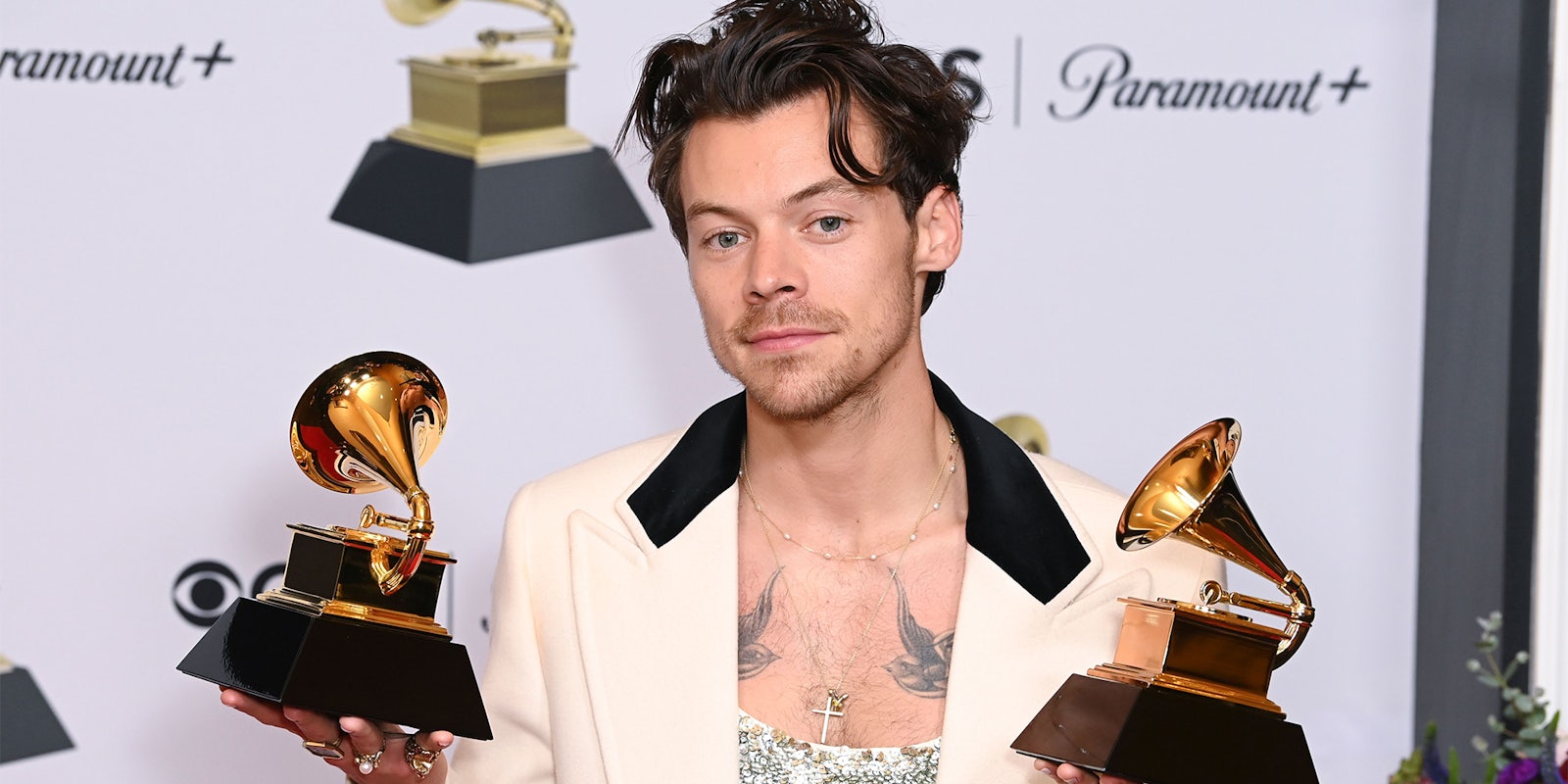Between Viola Davis achieving EGOT status with a Grammy for narrating her memoir, Kim Petras’ win with Sam Smith, and Beyoncé breaking a record for winning the most Grammys ever at 32 wins, the Grammy Awards offered plenty of firsts on Sunday night. But it ended on an incredibly familiar note with a renewed discussion about which artists are awarded the highly lauded album of the year Grammy and a backlash against Harry Styles, who won the Grammy for album of the year over top contenders.
Beyoncé was up for nine nominations on Sunday and walked away with four awards, including the record-breaking 32nd win. But she was shut out of the top three categories—where she has only won once, song of the year for “Single Ladies” in 2010—after song of the year went to Bonnie Raitt and record of the year went to Lizzo. And while the odds-on favorite to win album of the year for Renaissance, that honor went to Styles for Harry’s House instead.
Despite the losses for record and song, it was the shut-out for album of the year, which Beyoncé has never won. It’s been 24 years since a Black woman won album of the year (Lauryn Hill for The Miseducation of Lauryn Hill), a category largely dominated by white artists over its history. Bad Bunny, whose album Un Verano Sin Ti was the first all-Spanish album to be nominated for album of the year and was also seen as a top contender for the award, would have also been a historic win.
Beyoncé has now lost album of the year to Taylor Swift, Beck, Adele, and Styles, often enough that you can now make a collage of her watching the album of the year winner giving an acceptance speech.
And the backlash to Styles’ win, no matter how they felt about Harry’s House, began swiftly.
Styles’ acceptance speech, which included him uttering the phrase “This doesn’t happen to people like me very often,” only fueled more backlash because the majority of people who have won album of the year—white men—are like Styles.
An article from Variety, in which several anonymous Grammy voters revealed their ballots, showed the uphill battle Beyoncé faced from the music industry that was happy to award her prizes in more niche categories but not for major awards. It’s a small reflection of a larger, systemic issue that the Grammys has with awarding BIPOC artists for major awards outside of a specific genre of music.
“With Beyoncé, the fact that every time she does something new, it’s a big event and everyone’s supposed to quake in their shoes — it’s a little too portentous,” one voter, credited as “a music business veteran in his 70s,” told Variety.
A second voter, a “thirtysomething female singer voting for the second time,” said she didn’t vote for Beyoncé or Adele in the major categories because “I feel that they have already won a lot of Grammys.”
Styles was later asked about Beyoncé being expected to win album of the year in the press room.
“You never know with this stuff,” he responded. “I don’t think you can look at any of the nominees and not feel like they’re deserving. When I look at this category, it’s all people who have inspired me.”
Beyoncé has remained mum about the snub, but her creative director, Andrew Makadsi, posted a collage of several publications’ best-of lists that listed Renaissance as its no. 1 album of the year, letting the record speak for itself.



 (@raptalksk)
(@raptalksk) 